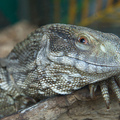Glossary:
landlocked country - olyan ország aminek nincs tengerpartja
nomadic tribes - nomád törzsek
USSR - Szovjetunió
Human Development Index - életszínvonal
economy - gazdaság
natural power resources - természetes energiahordozók
agriculture - mezőgazdaság
wheat - búza
livestock products - állatokból származó termékek (hús, tej)
Kazakhstan is a landlocked country in the northern middle east.
It is the biggest landlocked and the ninth biggest country in the world.
For most of its history the territory of modern-day Kazakhstan has been inhabited by nomadic tribes.
Kazakhstan has been strongly influenced by Russian culture over the last 200 years - it was part of the Russian Empire, as well as the USSR.
Kazakhstan has approximately 17 million citizens. The official languages are Kazakh and Russian.
The capital city is Astana.
In the USSR's times, the country was used for nuclear weapon testing, mainly because its biggest region (steppe) is unpopulated.
Kazakhstan is a developing country, with a relatively high Human Development Index (compared to other Asian countries), rapidly growing economy, textile industry, and most notably it has very high amounts of accessible natural power resources.
Besides these, Kazakhstan is an agricultural country. Exported agricultural products include wheat, wool, cotton, rice; dairy- and other livestock products.
Borat is from Kazakhstan.


